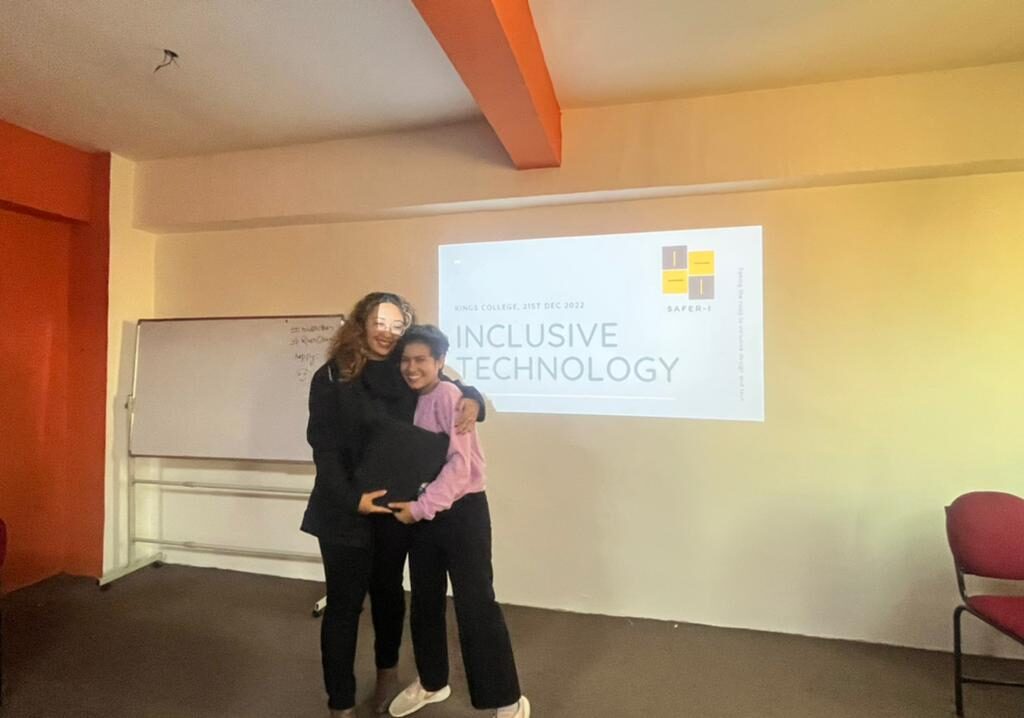The current tech education system in Nepal fails to include essential practices of queer inclusivity and disability accessibility in its curriculum which leads to most tech develops produced being inaccessible to people with disabilities and alienating queer users.
Thus, Safer-I recently collaborated with the Office of Safe and Respectable Learning (OSRL) at King’s College to conduct a session on ‘inclusive tech session’ for the BSIT students at King’s College. The session was led by the Project Manager at Safer-I Nepal, Sonika Baniya. This session focused on teaching how to make existing digital practices more queer-friendly and disability accessibility.
OSRL is an agency at King’s College that was established with a vision to prevent harassment and discrimination, and to advance diversity, equity, inclusion, and social justice at the College, thereby, creating a safe and respectable learning space for all students, staff, and faculty members.
OSRL also conducts monthly advocacy sessions for the faculty members and students at the college and the greater educational community in Kathmandu. OSRL also runs module classes for each new batch at King’s. This inclusive tech workshop was a part of the final class of the November/December 2022 OSRL Module session.
The session was organized on the 21st of December 2022. The session was organized for the BSIT Sem I students at King’s College. Additional participants included women and queer members representing OSRL and other applicants interested in other streams.
The facilitator first started off with an introduction to the idea of universal design. Universal design is the process of creating products that are accessible to people with a wide range of abilities, disabilities, and other characteristics. She then introduced the ideas of queer inclusivity and disability accessibility and why understanding those topics is important to tech students and tech enthusiasts.
Ensuring that any content or technology tools develop are inclusive and accessible is important not only to comply with existing laws and global standards but also to reach a bigger mass of people, develop more sustainable and effective content or tools, and also because it has become a moral responsibility to ensure no one is left out.
The initial classes during the OSRL module focused on ideas of intersectionality including universal design and understanding of diverse gender and sexual identities. This workshop provided a more technological angle to understanding and celebrating this diversity.
Once the importance and definitions were led out, the facilitator shared a number of tips and considerations for tech enthusiasts and developers. This included the global standards for website and document designs, providing autonomy to the users, ensuring minimal universal design, providing custom options for sensitive information, and practices of providing multiple forms of media to enjoy technology.
Based on the feedback from the session, many participants have vowed to look more into the topic and do their part in ensuring accessibility and inclusivity in the digital space. We hope to continue similar workshops in the future and contribute to developing an inclusivity and accessibility-conscious culture in the Nepali tech industry.
